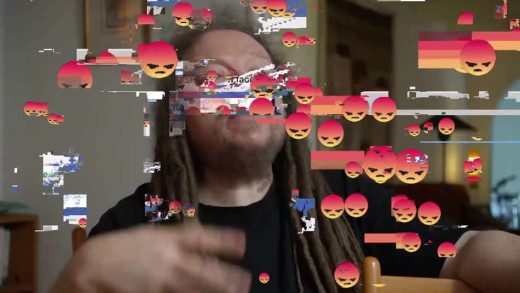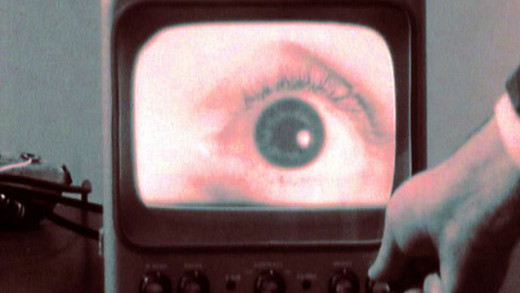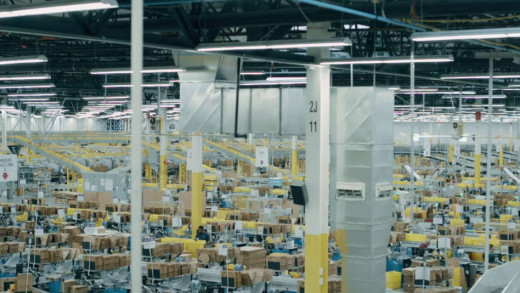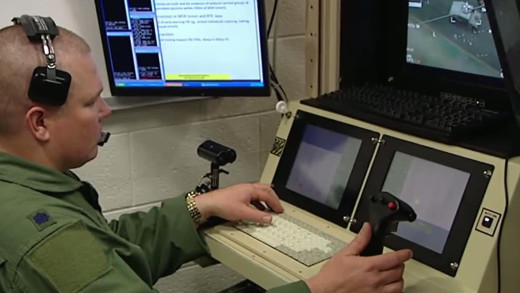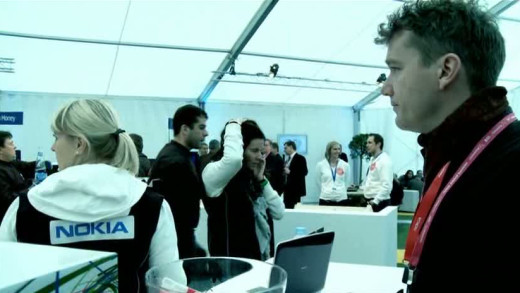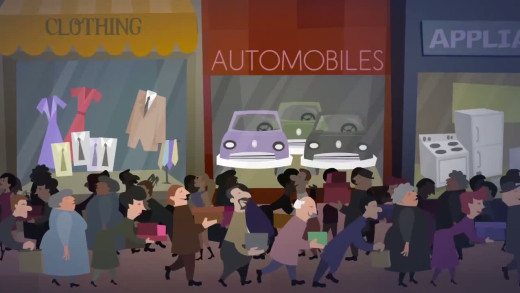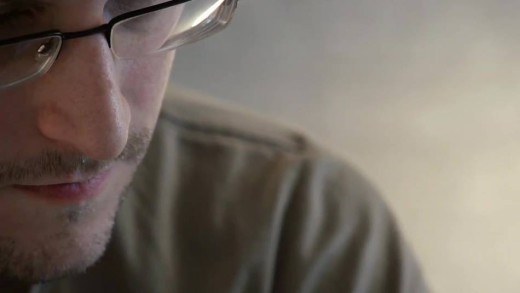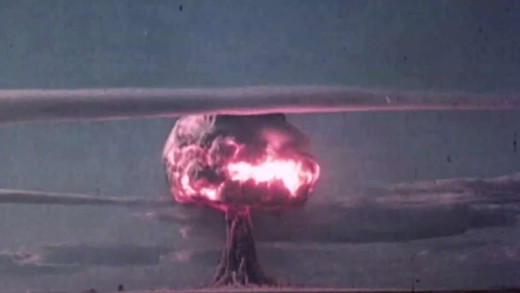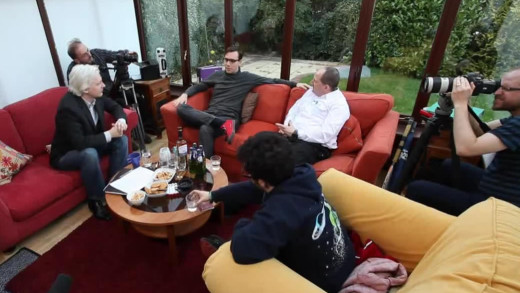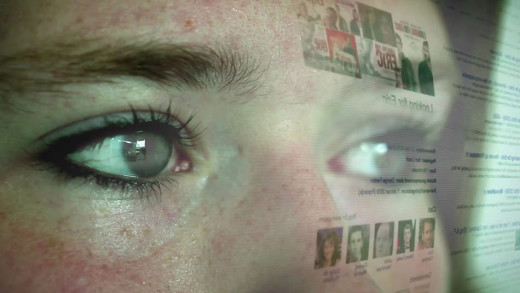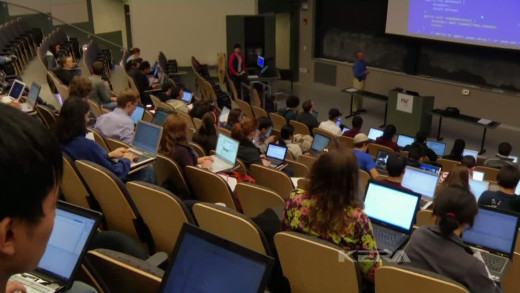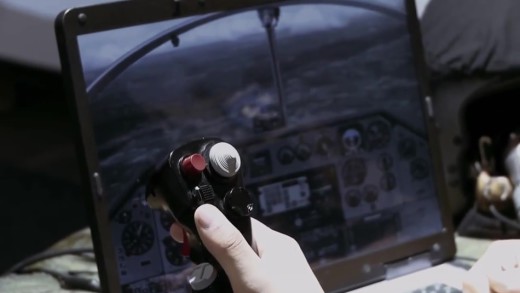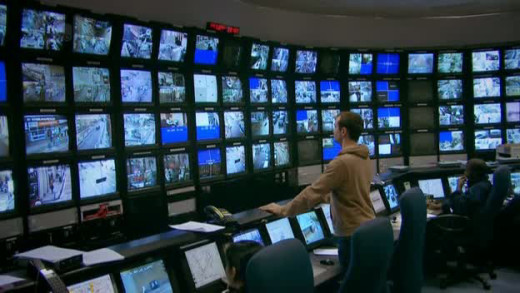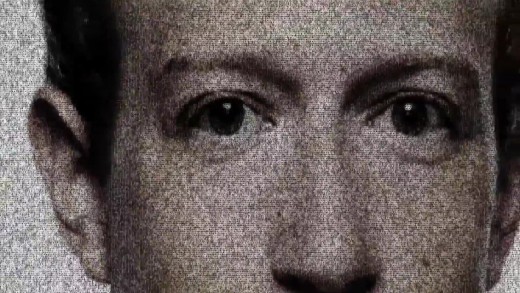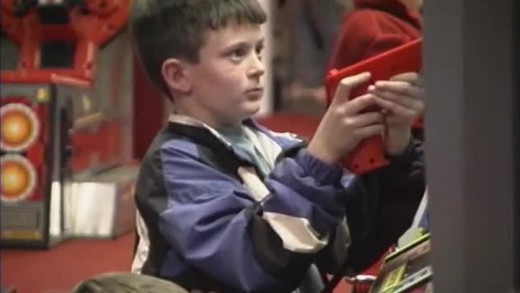Adrift
Adrift is a short film that explores the phenomenon of space junk, where human-made objects launched into space and are now defunct orbit the Earth literally as garbage. The film makes visible some of the immediate impacts and dangers of the technological escalation of this culture, where old satellites, spent rocket stages, and other items orbit the Earth, only to collide with one another at high velocities, generating smaller fragments that collide with other items, and so on. The end point is a cascading complex of junk that engulfs the entire space around the Earth. Adrift aims to make this phenomenon visible, putting a big question mark against the claims made by many futurists and technologists that future space colonisation would even be possible, if only it were a tenable or sensible idea in the first place...
Ten years on from his previous film, Advertising & the End of the World, renowned media scholar Sut Jhally follows up by exploring the since-escalating devastating personal and environmental fallouts of advertising and the near-totalising commercial culture. The film tracks the emergence of the advertising industry in the early 20th century to the full-scale commercialisation of the culture today, identifying the myth running throughout all of advertising: the idea that corporate brands and consumer goods are the keys to human happiness and fulfilment. We see how this powerful narrative, backed by billions of dollars a year and propagated by clever manipulative minds, has blinded us to the catastrophic costs of ever-accelerating rates of consumption. The result is a powerful film that unpacks fundamental issues surrounding commercialism, media culture, social well-being, environmental degradation, and the dichotomy between capitalism and democracy.
Transhumanists claim a beautiful and apparently now-not-so-distant utopian future made possible by artificial intelligence, life extension and cybernetic technologies. But upon examining the convergence of these technologies and the history behind them, Age Of Transitions details how this movement of "transcending human limits" was born out of pseudo-science eugenics, and what the implications are for a world divided by the have's and have-not's.
This culture runs on algorithms on a scale never before realised. Whether you get a job or a mortgage or insurance or healthcare, how you get from A to B, how huge fortunes are made or whom is driven into poverty, decisions on whom is sent to or released from prison, whom is voted for in manipulated elections--the reach of algorithms has captured so much of the major decisions of our lives, all in complete obscurity, inscrutable. So what are the implications of this? What sort of 'decisions' do machines make, to which we've come to regard as infallible and impartial, accurate and precise? Algorithms Rule Us All speaks to data scientists and programmers themselves to answer the question of what they think is unfolding with the so-called Big-Data society and how we're continuing to hand over our lives and societies to the whim of machines that are driven by rapacious profit-driven companies, for the goal of commodification of everything. What are the implications for human autonomy, society, democracy?
All Watched Over By Machines Of Loving Grace is a series of films about how this culture itself has been colonised by the machines it has has built. The series explores and connects together some of the myriad ways in which the emergence of cybernetics—a mechanistic perspective of the natural world that particularly emerged in the 1970s along with emerging computer technologies—intersects with various historical events and visa-versa. The series variously details the interplay between the mechanistic perspective and the catastrophic consequences it has in the real world.
In a quarter of a century, the Amazon corporation has propelled Jeff Bezos from 'online bookseller' to technology behemoth. He is the richest man on the planet, and the company he founded is one of the most powerful in the world. This documentary investigates Amazon's rise to corporate rein, revealing the problematic inside-operations that have the public tethered to its services. Former high-level insiders describe Amazon's obsessive data-gathering operations, that enable the company to use what it knows about us to shape not only the future of retail, but the workplace and technology in synergy. On both sides of the world, politicians and regulators are tardily beginning to question Amazon's power. But can the public rein in this corporate empire and break its addiction before even more damage is done to the structure of society and the environment?
Jeff Bezos is not only one of the richest men in the world, the vast corporate empire he has built is unprecedented in the history of capitalism. The corporate power to shape everything from the future of work to the future of commerce to the future of technology is unrivaled. The company's reach into the everyday life of citizens, manipulating their experience and extracting extreme profits, is profound. It's extraction of labour and giant streams of data is cataclysmic. It's reach into culture, media, law enforcement, even a deal with the CIA, is indicative. But despite all of this, the company contradictorily claims it is "just a speck." As regulators around the world tardily start to consider the global impact of Amazon and how to rein in its extreme corporate power, filmmakers Anya Bourg and James Jacoby reveal how Bezos's plan to build one of the most influential economic and cultural forces in the world has already transpired, and how the job of reining in this pervasive corporate power will be testing in the extreme.
The latest in the string of controversies as part of the United States' ongoing "war on terror", is the military's growing reliance on "Unmanned Aerial Vehicles" otherwise known as 'drones', evidenced by the international reaction to recent drone missile attacks along the border in Pakistan. The military is also deploying other technological advancements alongside, such as robots in the battlefield and drones that work in swarms. Is this just a big computer game? A new tech-driven arms race? It doesn't end there though -- drones are now creeping into use by police and the intelligence services as a surveillance tool, and even into commercial and civilian use...
Blood Coltan travels to eastern Congo, where a bloody war is happening over a precious metal called Coltan—a raw material used in electronic devices such as computers, televisions and mobile phones. The demand for Coltan is driven by the west, funding the war in Congo between rebel militias and children as young as ten who work the mines hunting for this precious material of the technocratic age...
Modern society loves mobile phones -- the selection between different models and gadgets has never been bigger. But the production of this technology has a hidden, dark, bloody side. The main minerals used to produce mobile phones are coming from the mines in the Eastern DR Congo. The Western World is buying these minerals up at a furious rate, financing a bloody civil war which, during the last 15 years, has cost the lives of more than 5 million people. Blood In The Mobile explains the connections between mobile phones and the civil war in the Congo, while technology corporations whitewash the issue to "supply and demand" and claim ignorance...
Combining graphs and other visual examples in animation, this short film goes through the issues surrounding the collapse of industrial civilisation--by collating the interconnectedness of energy depletion, carrying capacity, population growth, peak natural resource extraction, and other issues with the problems of exponential economic growth on a finite planet. Can this current way of life continue? The film takes us through these problems and also examines some of the many flaws inherent in some proposed solutions, such as 'change-by-personal-consumer-choice', or the vague belief in technology as the deus ex machina to save the day. These serious problems need serious solutions and require a radical rethinking of this current way of life that cannot continue indefinitely. Time is short...
Can't Get You Out of My Head: An Emotional History of the Modern World is a six-part series that explores how modern society has arrived to the strange place it is today. The series traverses themes of love, power, money, corruption, the ghosts of empire, the history of China, opium and opioids, the strange roots of modern conspiracy theories, and the history of Artificial Intelligence and surveillance. The series deals with the rise of individualism and populism throughout history, and the failures of a wide range of resistance movements throughout time and various countries, pointing to how revolution has been subsumed in various ways by spectacle and culture, because of the way power has been forgotten or given away.
Citizenfour
In January 2013, film-maker Laura Poitras received an encrypted e-mail from a stranger who called himself Citizen Four. In it, he offered her inside information about illegal wiretapping practices of the NSA and other intelligence agencies. Poitras had already been working for several years on a film about mass surveillance programs in the United States, and so in June 2013, she went to Hong Kong with her camera for the first meeting with the stranger, who identified himself as Edward Snowden. She was met there by investigative journalist Glenn Greenwald and The Guardian intelligence reporter Ewen MacAskill. Several other meetings followed. Citizenfour is based on the recordings from these meetings. What follows is the largest confirmations of mass surveillance using official documents themselves, the world has never seen...
What does it mean when so-called Artificial Intelligence systems increasingly govern all of our civil rights and social interactions? What are the consequences for the people AI systems are biased against? When MIT Media Lab researcher Joy Buolamwini discovers that many facial recognition technologies do not accurately detect dark-skinned faces nor properly detect the faces of women, she delves into an investigation which reveals widespread bias in the algorithms that already drive much of the modern world. As she uncovers, these systems are not neutral, and are already having severe social and political impacts. Coded Bias documents this investigation, and the women who are leading the charge to ensure civil rights are protected from the relentless inertia of technology.
As the United States developed the world's first nuclear weapons in secret, it was surprised at the speed in which the USSR was able to also develop such weapons, and that such developments would lead to an unprecedented arms race. The USSR was able to obtain all the nuclear discoveries made by scientists who worked on the top-secret Manhattan Project through a very unusual spy, Elizabeth Zaroubin. She managed to gain the trust of great researchers, such as Einstein, in a story comparable to some of the best spy novels ever written.
Complicit
Filmed over 3 years, Complicit is an undercover investigation into the lives and conditions of workers that assemble iPhones, tablets, and other electronics in factories such as Foxconn in Shenzhen and Guangzhou, China. The film reveals the global economy's factory floors, showing the conditions under which China's youth have migrated by the millions in search of the espoused "better life" working for big corporations. But the reality is working long hours with toxic chemicals that cause many cumulative detrimental health conditions, including cancers. As such, a focal point of the story is Yi Yeting, who takes his fight against the global electronic industry from his hospital bed to the international stage. While battling his own work-induced leukemia, Yi Yeting teaches himself labour law in order to prepare a legal challenge against his former employers. As the struggle to defend the lives of millions of Chinese people from becoming terminally ill from work necessitates confrontation with some of the world’s largest corporations, including Apple and Samsung, Complicit turns to become a powerful portrait of courage and resistance against screens and rapacious corporate power in a toxic culture.
Cypherpunks is a movement originating from the 1980s aiming to improve Internet privacy and security through proactive use of cryptography. With WikiLeaks being a recent offshoot of the many projects derived from the Cypherpunk movement, WikiLeaks editor Julian Assange talks with three activists from the Cyberpunk world to cover the topics of mass surveillance and social control being tied directly into technology as modern society progressively intertwines with technological progress...
With the pervasive screen environment, our memory is dissipating. Hard drives only last five years; webpages are forever changing in the way of the Ministry of Truth; and there's no machine left that reads 15-year old floppy disks. Digital data is vulnerable. Yet entire libraries of books and other physical artifacts of information and culture are being lost due to budget cuts, or even the shifting assumption that everything can be found online, and can always be in the digital realm. How is this untrue? For the first time in history, we have the technological means to save great swathes of data about our past, yet it seems to be going up in smoke already. Will we suffer from collective amnesia in the age of decline?
Tracing the Internet's history as a publicly-funded government project in the 1960s, to its full-scale commercialisation today, Digital Disconnect shows how the Internet's so-called "democratising potential" has been radically compromised by the logic of capitalism, and the unaccountable power of a handful of telecom and tech monopolies. Based on the acclaimed book by media scholar Robert McChesney, the film examines the ongoing attack on the concept of net neutrality by telecom monopolies such as Comcast and Verizon, explores how internet giants like Facebook and Google have amassed huge profits by surreptitiously collecting our personal data and selling it to advertisers, and shows how these monopolies have routinely colluded with the national security state to advance covert mass surveillance programs. We also see how the rise of social media as a leading information source is working to isolate people into ideological information bubbles and elevate propaganda at the expense of real journalism. But while most debates about the Internet focus on issues like the personal impact of Internet-addiction or the rampant data-mining practices of companies like Facebook, Digital Disconnect digs deeper to show how capitalism itself turns the Internet against democracy. The result is an indispensable resource for helping viewers make sense of a technological revolution that has radically transformed virtually aspect of human communication.
Within a single generation, digital media, the Internet and the World Wide Web have transformed virtually every aspect of modern culture, from the way we learn and work to the ways in which we socialise and even conduct war. But is technology moving faster than we can adapt to it? Is our constantly-wired-world causing us to lose as much as we’ve apparently gained? In Digital Nation, Douglas Rushkoff and Rachel Dretzin explore what it means to be human in a 21st-century digital world...
Drone
In the wake of the September 11th attacks, amongst the ravaging of war, the United States has been secretly deploying drones to carry out assassinations throughout the Middle East. The drones are increasingly piloted by the likes of young computer gamers groomed by screen culture and computer games of war, where in many cases, the Pentagon is directly involved in the creation of such games as recruitment tools, actively working to lure young people proficient with technology into the new era of the military-industrial-complex. Drone unravels this complex phenomenon while travelling to places such as Waziristan, where innocent civilians, including children and rescue workers are routinely secretly killed, where families and communities ravaged by the drone strikes search for understanding, accountability and adjustment to the daily horrors. The film also takes a look at the young people sitting behind the screens of the new war machines, half a world away, that actually pull the trigger, asking what kind of world is being built in the rise of seemingly endless and lucrative war driven by technological escalation.
Humanity is absolutely dependent on animals as part of life. In industrial society however, this has extended to animals as pets, 'entertainment' and for expendable use in scientific research -- animals are tortured for 'scientific tests', locked in cages as pets and at the zoo and are bred on mass for cheap meat. What does this say about industrial civilisation? Earthlings conducts an in-depth study into pet stores, puppy mills and animals shelters, as well as factory farms, the leather and fur trades, sports and entertainment industries, and the medical and scientific profession, using hidden cameras to directly show the day-to-day practices of some of the largest industries in the world...
Endurance
Mark Willacy travels to the front line of the war in the Ukraine to investigate if peace is even possible. With extraordinary access just a kilometre from Russian positions, Willacy watches from an underground bunker as an elite Ukrainian drone unit hunts and kills enemy soldiers in real-time. Willacy also speaks with Ukraine's political leaders about whether the United States can broker a "just peace" with the man who started it all, Vladimir Putin. As the war's third anniversary looms, Endurance takes viewers to the battlefield, where Russia is throwing everything it has at Ukraine in relentless, suicidal waves.
Film maker David Bond lives in one of the most intrusive surveillance states in the world -- Britain. When David receives a letter stating that both he and his daughter are amongst the 25 million residents whose details have been lost by the government in a massive data breach, David sets out to investigate some potential impacts of such data being lost in a society of mass surveillance. Erasing David documents the test where David hires two private detectives to track him down as he chooses to 'disappear' for 30 days to see if he can avoid being caught amongst the vast data trails generated by modern society...
Filmmaker Werner Boote travels across the globe to investigate the era of so-called Big Data, where huge amounts of detail about our lives are gleaned for use in decision making, automation, and consumerism, but ultimately, to generate huge profits for corporations that harvest and control our data. Everything's Under Control investigates these modern times through many lenses: People who have studied surveillance culture, to democracy activists in Hong Kong; from educators, advertisers, and traders, to privacy advocates, and security experts; from digital IDs, fingerprinting, iris scans and online profiling, to hacking, data leaks, and invigorating recent historical memory of atrocities based on data and personal information. We hear distorted perspectives on privacy from many voices, challenging the viewer to reflect on what it means to live through the largest social experiment with data ever before conducted on a global scale.
Facebook is an enormously powerful corporation, harnessing both the self-disclosed and gleaned personal data of over 2 billion people. Its user-base is larger than the population of any country. The company is all pervasive online, tracking and profiling users and non-users alike. Cracking the Code looks at the insides of this giant machine and how Facebook turns your thoughts and behaviours into profits--whether you like it or not. And it's not just a one-way transaction either. Cracking the Code also explains how Facebook uses vast troves of web data to manipulate the way you think and feel, as well as act--all in the sole interests of Facebook, masquerading as "community." What are the social implications of this--when one company basically controls the insights and experiences of the entire online world, with extremely personalised and targeted social and behavioural engineering on a scale never before seen?
Centred around the concept of open computer networks that contradictorily end up running closed corporate-controlled communication portals like Facebook and Twitter, Free The Network follows two young men who camp out at Zuccotti Park building wireless access points to connect their devices as part of the 'Occupy movement.' Through interviews along the way, Free The Network examines the current state of the Internet in the midst of the protest, and shows how the myth of the 'democratisation of technology,' along with the widespread emergence of clicktivism, is a flawed framework for driving social and political change...
At the time of making this film, the year 2000, computer games represented a $6 billion a year industry, and one out of every ten households in the United States owned a Sony Playstation—numbers that have no-doubt since skyrocketed. Back then, children played an average of ten hours per week—a stat also since to have increased today—and yet, despite capturing the attention of millions of these kids, video games remain one of the least scrutinized cultural industries. Game Over seeks to address this fastest growing segment of the media, through engaging questions of gender, race and violence. Game Over offers a much needed dialogue about the complex and controversial topic of video game violence, and is designed to encourage viewers to think critically about the games they play.



